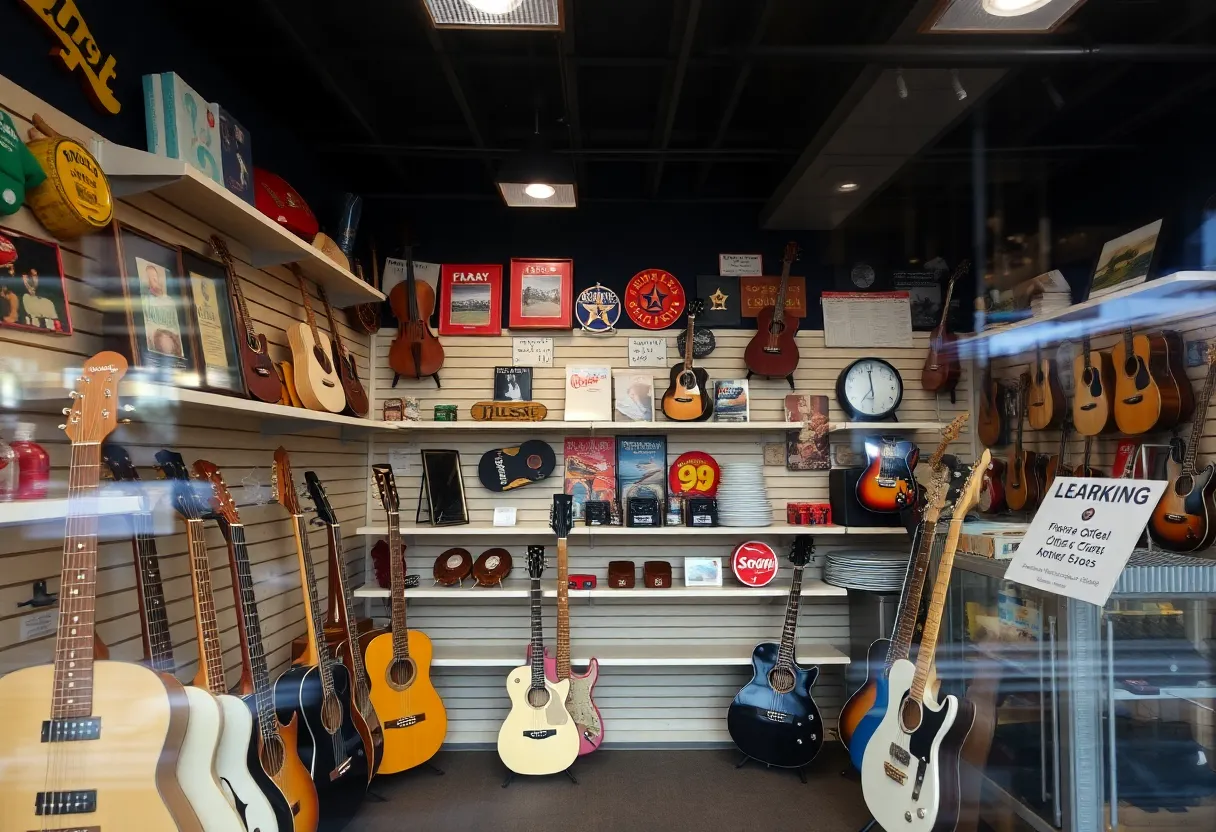Omaha, October 10, 2025
Millard Music House, a prominent music store in Omaha, has announced its permanent closure after 40 years of service. The store, cherished by generations of musicians, cited economic pressures and online competition as key factors behind its decision. Its closure marks the end of an era for the local music community, affecting not only customers but also the cultural landscape of Omaha. Efforts may arise to commemorate the store’s legacy, reflecting the human element in business and the evolving retail environment.
Millard Music House in Omaha Announces Permanent Closure
Omaha, Nebraska – After 40 years in business, Millard Music House, a longstanding music store in Omaha, has announced its permanent closure. The store, which provided instruments and repair services to generations of musicians in Nebraska, cited economic pressures and online competition as the primary reasons for shutting down. This development marks the end of an era for the local music community.
Millard Music House‘s closure was made public recently, highlighting the challenges faced by traditional brick-and-mortar retailers in the face of modern market dynamics. The store’s owner pointed to rising costs and the shift toward online shopping as key factors that made continued operations unsustainable. This announcement comes amid broader economic shifts affecting small businesses across Nebraska, where many local establishments are grappling with similar issues.
In a farewell statement, the owner expressed appreciation for the store’s loyal customers, emphasizing the relationships built over the decades. The closure affects not only the employees but also the many musicians who relied on Millard Music House for high-quality instruments and expert repairs. The store had become a staple in the community, serving as a hub for music education and performance preparation.
Supporting details reveal that economic pressures included increased operational costs, such as rent and inventory expenses, which have risen steadily in recent years. Online competition from large e-commerce platforms has eroded the store’s customer base, as consumers increasingly opt for the convenience and lower prices available digitally. This trend is not unique to Omaha but reflects a nationwide pattern in the retail sector, particularly for niche businesses like music stores.
Further context shows that Millard Music House opened in 1985 and quickly established itself as a go-to destination for Nebraska musicians. Over the years, it catered to everyone from beginners to professional artists, offering a wide range of instruments, including guitars, pianos, and brass instruments, along with specialized repair services. The store’s longevity allowed it to build a strong reputation, fostering a sense of community among local music enthusiasts.
The impact of this closure extends beyond the business itself. It represents a loss for the cultural landscape of Omaha, where music plays a significant role in community events and education. Many customers shared stories of purchasing their first instruments at the store or receiving repairs that kept their gear in top condition for performances. As online options grow, the personal touch of a local store like this becomes harder to replace, potentially affecting access to hands-on music retail experiences in the area.
Looking at the broader picture, the closure aligns with recent trends in the retail industry. Data from business reports indicate that small retailers in sectors like music and instruments have seen a decline due to digital disruption. In Nebraska, similar closures have occurred in other specialty stores, underscoring the need for adaptation in a changing economy. Despite these challenges, the legacy of Millard Music House will likely endure through the memories of those it served.
Efforts to preserve the store’s history may include community events or memorials, though no specific plans have been detailed. The owner’s gratitude toward customers underscores the emotional aspect of this closure, reminding the public of the human element in business decisions. As Omaha moves forward, this event serves as a reminder of the evolving retail environment and the importance of supporting local enterprises.
In summary, the permanent closure of Millard Music House after 40 years highlights the ongoing struggles of traditional retailers against economic and competitive forces. It leaves a void in Omaha’s music scene but also celebrates a rich history of service to Nebraska’s musicians.
This article is based on recent announcements and related business developments in the region.
FAQ Section
Frequently Asked Questions
- Q: When did Millard Music House announce its permanent closure?
- A: Millard Music House announced its permanent closure today.
- Q: What services did Millard Music House provide?
- A: The beloved Omaha music store served generations of Nebraska musicians with instruments and repairs.
- Q: What were the reasons cited for the closure?
- A: Economic pressures and online competition were cited as reasons for the closure.
- Q: How long was Millard Music House in business?
- A: Millard Music House was in business for 40 years.
- Q: What did the owner express in the farewell statement?
- A: The owner expressed gratitude to loyal customers in a farewell statement.
Key Features Chart
| Feature | Description |
|---|---|
| Years in Business | 40 years |
| Location | Omaha, Nebraska |
| Primary Services | Instruments and repairs for musicians |
| Reasons for Closure | Economic pressures and online competition |
| Owner’s Sentiment | Expressed gratitude to loyal customers |


